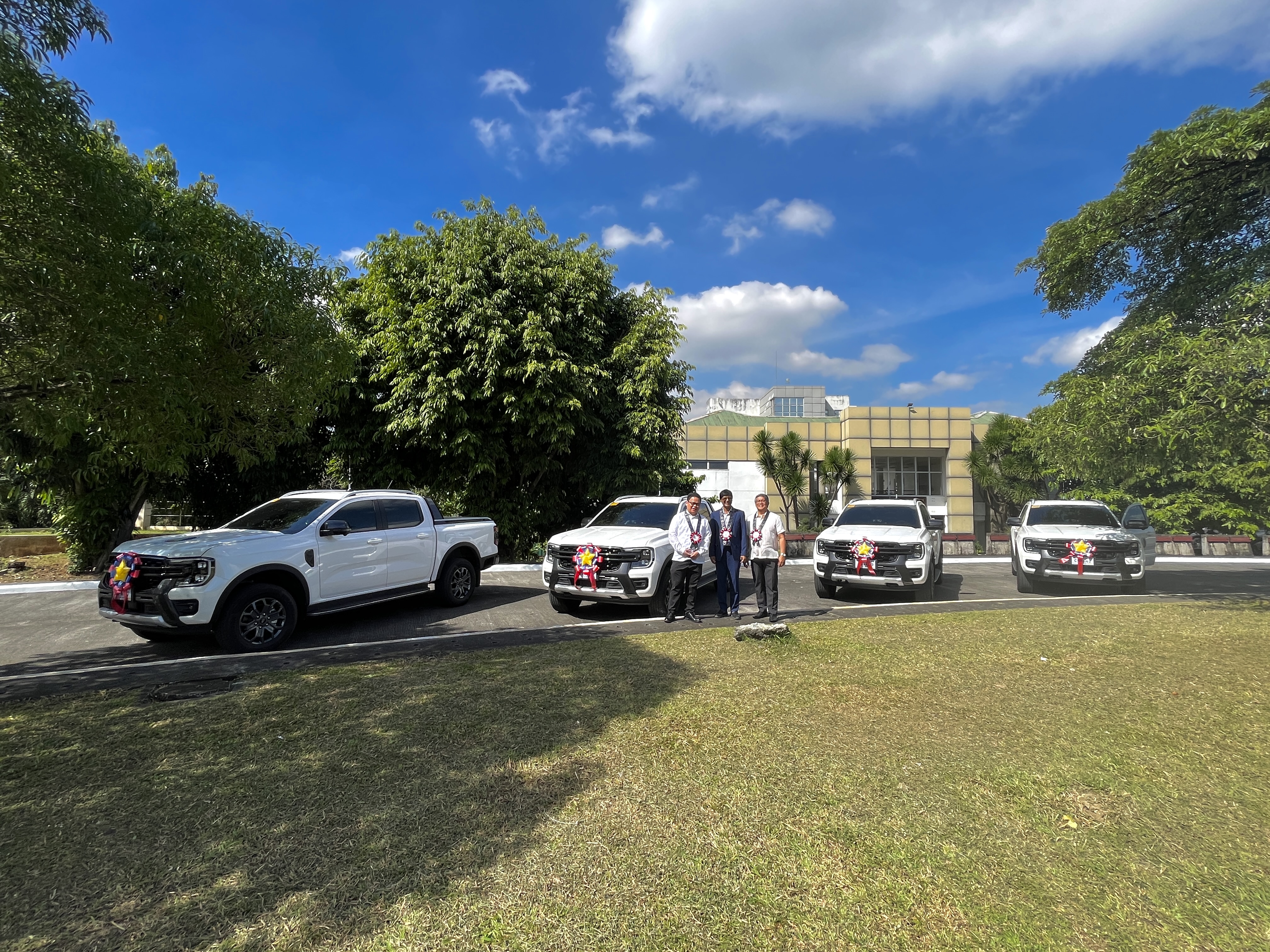DICT to enhance emergency response with new equipment from UNDP
January 30, 2023

UNDP Philippines Resident Representative Selva Ramachandran hands over the remaining four (4) emergency response vehicles to DICT Undersecretary Manual Anthony S. Tan and Assistant Secretary Wilroy V. Ticzon.
QUEZON CITY – The Department of Information and Communications Technology (DICT) and United Nations Development Programme (UNDP) Philippines held a ceremonial handover activity of disaster response communications equipment on 26 January 2023 at the University of the Philippines Diliman College of Science Amphitheater.
Under the Immediate Response, Recovery, and Resilience Initiatives in Typhoon Odette Affected Areas project of UNDP, the transfer aims to ensure the assets’ continued use for DICT’s disaster and emergency response and strengthen the agency’s coordination and communications capacity.
In the event, UNDP Philippines Resident Representative Dr. Selva Ramachandran, DICT Undersecretary Manuel Anthony S. Tan, and Assistant Secretary Wilroy V. Ticzon signed the Deed of Transfer of all disaster response equipment and assets to DICT. The four (4) remaining emergency response vehicles were also handed over to the government agency. These will be instrumental in addressing the needs of the affected areas in the aftermath of Typhoon Odette where coordination and communication have been disrupted.
“The Philippines is vulnerable to the effects of climate change and natural disasters. How do we lessen the burden on our people? The government is proactively working hand-in-hand to provide better disaster preparedness, speedy emergency response, and faster recovery time,” said Undersecretary Tan.
Dr. Ramachandran stressed in his message that UNDP will remain committed to assisting national and local governments in building resilient communities and strengthening its adaptive capacity to climate-related natural hazards. “I certainly would like to commend the proactive stand that DICT took to play an important role during Typhoon Odette, and we hope that this joint endeavor will help in coping with future disasters,” added Dr. Ramachandran.
Assistant Secretary Ticzon also reaffirmed the DICT’s commitment to disaster response and improving equal access to emergency response. “The DICT has a collaborative engagement with UNDP in carrying out disaster response and recovery work toward community resilience with a goal to improve equal access to sustainable basic service through the provision of various emergency response equipment. These equipment will enable us to seek towards recovery, planning the restoration of bypass services and infrastructures and other measures in resilience building,” stated Assistant Secretary Tizon.
In 2022, UNDP delivered the first set of assets and equipment to DICT, including six (6) pick-up trucks, 20 units of mobile radio communication systems, 40 units of very small aperture terminals (VSATs), 50 units of generator sets, 30 units of rugged tablets, 40 units of satellite phones, and one (1) base transceiver station. In coordination with DICT’s Disaster Risk Reduction Management Division (DRRMD), these have been distributed among the Department’s regional and provincial offices, and the six (6) severely affected local government units, to provide rapid response in terms of emergency telecommunications.
This project aligns with one of the components of the DICT-UNDP’s Connectivity, Capability and Resiliency through Free Wi-Fi for All (CoRe FW4A) Project, which seeks to improve disaster preparedness and response for emergency connectivity and communications. More disaster communications equipment will be deployed under the CoRe FW4A project such as generator sets, satellite phones, and base transceiver stations.
Pursuant to the National Disaster Risk Reduction Management Council (NDRRMC) Memorandum Circular No. 01, series of 2019, the DICT is designated as the Lead Agency for the Emergency Telecommunications Cluster (ETC) and is mandated to strengthen the ICT capacities at the national cluster level down to local levels to prepare for, respond to, and recover from the impacts of disasters. ###

 Locations
Locations

